notes on the origins, definition and forms of fiction
Early Fictional Records
Epic of Gilgamesh
Epic of Gilgamesh (Sumer bf 2000 BC)
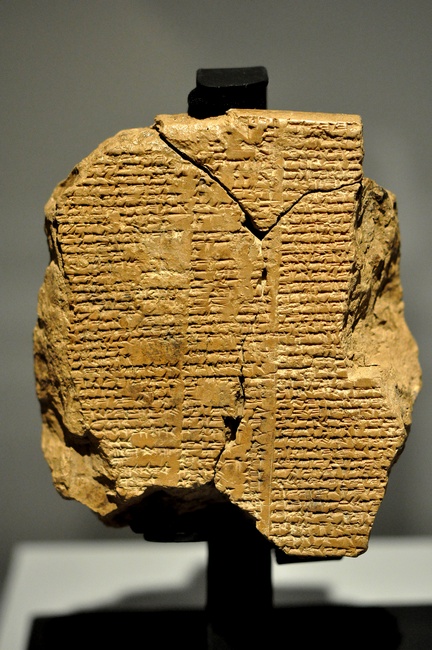
Tablet of the Epic of Gligamesh
- First great work of literature (poem?)
- Gilgamesh, King of Uruk & his friend Enkidu
- Journey to the Cedar Mountain and defeat Humbaba
- Media will be placed here
- Conflict with Goddess Ishtar
- Gilgamesh is punished by sentencing Enkidu to death
- Journey to discover the secret of eternal life
Quote
“Death lives in the house where my
bed is,
and wherever I set my feet, there Death is.”
Zhuangzi
Zhuangzi (China 3rd Century BC)
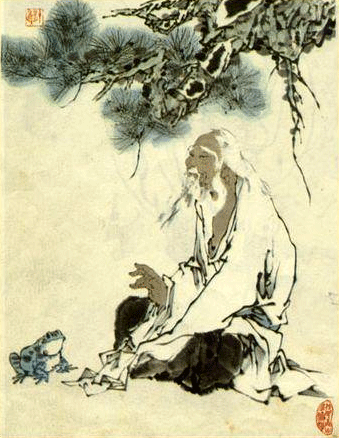
- Authorship: Master Zhuang
- Form: short stories, anecdotes. allegories, fables
- Structure: episodic, philosophical treatise (essay)
- Hero: Zhuang
- Theme: Carefree life
- Influence: alongside Dao De Jing, these two works had a great influence on Eastern & Western literature
Quote
"Once upon a time, Zhuang Zhou dreamed he was a butterfly, a butterfly flitting about happily enjoying himself. He did not know that he was Zhou. Suddenly he awoke, and was palpably Zhou. He did not know whether he was Zhou, who had dreamed of being a butterfly, or a butterfly dreaming that he was Zhou. Now, there must be a difference between Zhou and the butterfly. This is called the transformation of things.“ Zhuangzi, chapter 2
One Thousand and One Nights
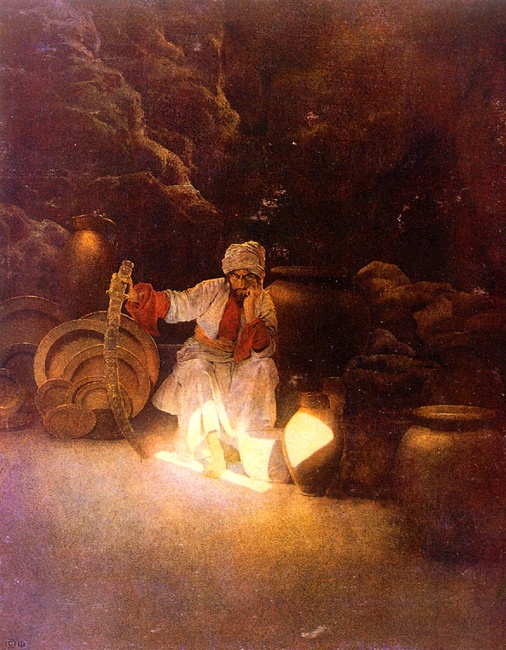
One Thousand and One Nights (Islamic World 10th -14th Cs.)
- Authorship: Unknown
- Form: Fantasy, Horror, Science Fiction, Allegories, Fables
- Structure: episodic
- Protagonists & Antagonists: Iconic characters
- Theme: Fate & Destiny
- Influence: Translated to western languages during the 18th C. It is considered one of the Earliest science fiction books (travel across the cosmos, humanoid robots)
Quote
“My story is of such marvel that if it were written with a needle on the corner of an eye, it would yet serve as a lesson to those who seek wisdom.”
Philosophus Autodidactus
Hayy ibn Yaqzan or Philosophus Autodidactus (Middle Ages: Islamic World 12th Cs.)
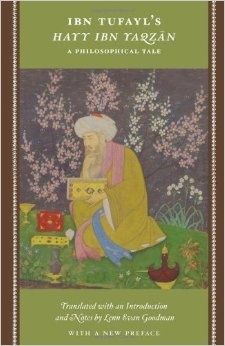
- Authorship: Abubacer Aben Tofail
- Form: Philosophical romance & allegorical novel (Sufism)
- Structure: philosophical treatise (essay)
- Hero: Feral child raised by a gazelle
- Setting: a desert island
- Theme: Discovering “truth” through a process of inquiry
- Influence: had great influence on Western literature during 17th & 18th Cs., and on Western philosophers like Thomas Hobbes, John Locke, Isaac Newton, and Kant. Daniel Defoe’s Robinson Crusoe’s is said to have been influenced by Aben Tofail’s account.
The Tale of Genji
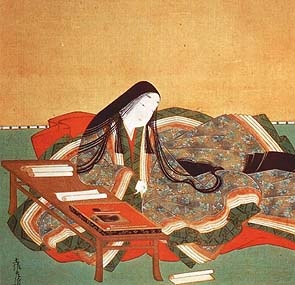
The Tale of Genji (Middle Ages: Japan 11th C.)
- Authorship: noblewoman, Murasaki Shikibu
- The World’ first novel, first psychological novel, Historical novel, a classic
- Translated into English in 1882
- Form: Novel, Romance, Saga
- Structure: Parts, Chapters, Instalments
- Hero: Hikaru Genji, or "Shining Genji"
- Setting: The court
- Theme: love, political intrigue
- Influence: The famous novelist Jorge Luis Borges said of it, "The Tale of Genji, as translated by Arthur Waley, is written with an almost miraculous naturalness, and what interests us is not the exoticism—the horrible word—but rather the human passions of the novel.
Le Morte d'Arthur
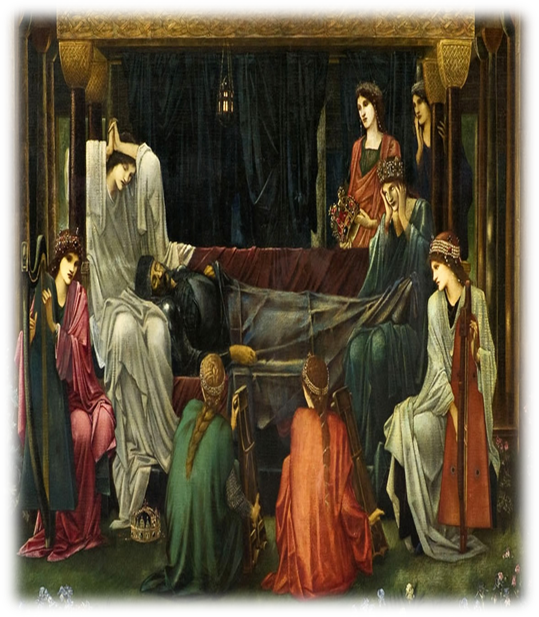
Le Morte d'Arthur (Renaissance: Europe 15th C.)
- Authorship: Thomas Malory
- Based on stories about King Arthur and his knights from English and French literature.
- Form: Knightly Romance
- Structure: episodic
- Hero: King Arthur
- Setting: The court
- Theme: love, war
- Influence: This text has a great influence on the mentality of men of letters who later wrote about the Arthurian legends in a fictional format.
Don Quixote
Don Quixote (Spain early 17th C.)
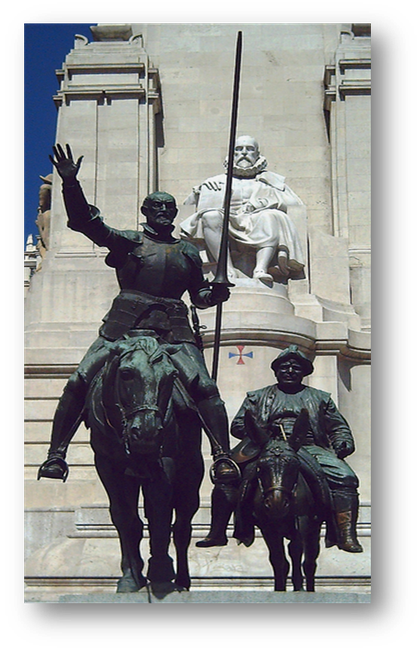
- Authorship: Miguel de Cervantes Saavedra
- One of the first canonical novels in European literature
- Form: Knightly Romance ( picaresque - burlesque)
- Structure: episodic
- Hero: unnamed nobleman who is insane and travelling with a witty farmer, Sancho Panza
- Setting: plains of La Mancha
- Theme: satire of orthodoxy, conflict between reality and imagination
- Influence: It influenced the art of such figures as Picasso, and the fiction of writers such as Dumas (early 19th C.), and Mark Twain (late 19th C.).
Why are we reflecting on these older texts?
- Historical merit (Recorded Texts)
- Literary merit
- Far-reaching influence (transcending time and influencing various cultures)
What is Fiction?
A Fictional work is an imaginative rendering of life in narrative form that uses prose as a medium. Generally speaking, a fictional narrative is a falsehood because it relates events that have never actually taken place, and it explores the lives of people (characters) who never existed, However, fiction writers aim at depicting “legitimate falsehoods,” since they seek to demonstrate meaningful, universal insights into the human condition.
Rating Fiction!
There are various categories of fiction:
- Literary Fiction (distinguished writing, original thought, and style which sets it a part from ordinary written works).
- Canon Literature: (a group of literary works that are considered the most important of a particular time period or place).
- Commercial Fiction (appeals to a broader audience and can be in sub-genres like mystery, romance, thriller, western, science fiction, etc.)